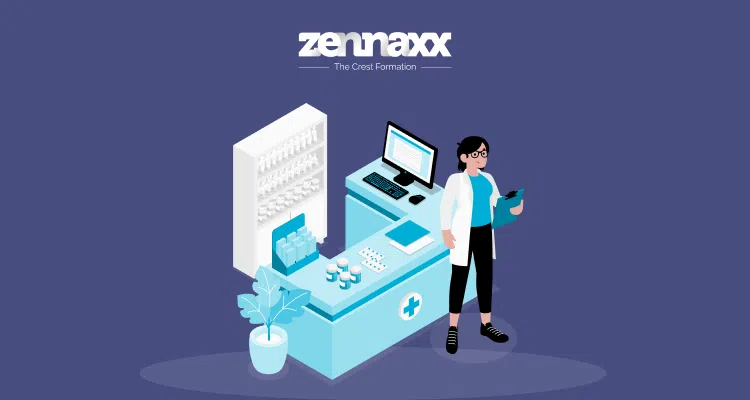- Why hospital inventory management is important for patient care and operational efficiency.
- The challenges hospitals face without proper inventory management.
- How hospital inventory management software can help overcome these challenges.

What is Hospital Inventory Management?
Hospital inventory management refers to the systematic approach of ordering, storing, tracking, and controlling the supplies, medications, and equipment used in a healthcare facility.
1. Types of Hospital Inventory
Understanding the different types of hospital inventory can help you identify suitable software for your facility’s inventory management needs.
2. Periodic Inventory
3. Perpetual Inventory
Why is Hospital Inventory Management Important?
- Quality Patient Care: Shortages or delays can compromise patient safety and treatment outcomes. So, the availability of necessary medical supplies and equipment ensures that patients receive timely and appropriate care.
- Operational Efficiency: Efficient inventory management reduces waste, minimizes overstocking, and ensures that resources are utilized effectively. Consequently, this leads to cost savings and improved financial performance.
- Compliance and Safety: Hospitals must comply with various regulatory requirements related to the storage and handling of medical supplies. Proper inventory management helps maintain compliance and ensures that expired or unsafe items are not used.
Challenges of Hospital Inventory Management
Managing hospital inventory without reliable inventory management software can be challenging. Let’s examine some of these challenges:
1. Increased Operational Costs
2. Sorting Pharmaceuticals
3. Stockouts and Overstocking Issues
4. Tracking Expiry Date of Medical Supplies and Pharmaceuticals
5. Tracking and Accountability Problems
Planning to Optimize Your Hospital Inventory?
Ready to Transform Your Hospital’s Inventory Management? Let’s Build Your Custom Software Solution Today!
How Hospital Inventory Management Software Helps Solve These Challenges
1. Cost Reduction Through Efficient Inventory Use
2. Sorting Pharmaceuticals
3. Automated Tracking and Real-Time Updates
Hospital inventory management software automates the tracking of medical supplies and medications, providing real-time updates on inventory levels.
4. Expiry Date Alerts and Batch Tracking
Features of Hospital Inventory Management Software/System
1. Real-Time Inventory Tracking
Stock tracking is a fundamental feature that provides real-time visibility into inventory levels. Moreover, it helps you monitor stock levels, track usage patterns, and identify trends.
2. Medical Supply Management
3. Medical Equipment Management
4. Inventory Automation
5. Integration with Electronic Health Records (EHR) and Other Systems
The software should be able to integrate with other systems within your organization, such as EHR software, pharmacy management, and procurement systems, to ensure that inventory data is shared seamlessly across your healthcare facility.
6. Detailed Reporting and Analytics
7. Security and Compliance

Benefits of Healthcare Inventory Management Software
1. Improved Patient Care and Safety
2. Simplified Inventory Management
3. Improves Accuracy
As a result of this, you can maintain a steady supply of necessary items and make informed decisions based on data.
4. Enhanced Operational Efficiency
5. Cost-Savings and Waste Reduction
Important Factors to Consider When Choosing the Right Software for Your Hospital
1. Scalability and Customization Options
2. User-Friendly Interface and Training Support
3. Integration Capabilities with Existing Systems
4. Cost and Return on Investment
So, you should evaluate the total cost of ownership, including licensing fees, implementation costs, training expenses, and ongoing maintenance and support costs.
5. Vendor Support and Reliability
Want to Automate Your Business Process With a Software Solution?
Zennaxx, a leading software development firm in Canada, has delivered 700+ bespoke solutions spanning various industries.
Best Practices to Follow for Hospital Inventory Management Software Development
To ensure your custom software meets the needs of your healthcare facility and provides optimal performance, here are some best practices to follow for effective hospital inventory management software development:
1. Involve Stakeholders in the Development Process
2. Focus on User-Friendly Design and Ease of Use
A user-friendly design is essential to ensure that staff can quickly learn and effectively use the software. Focus on creating an intuitive interface, easy navigation, and clear instructions to minimize the learning curve.


